Esther is a creative force and a mainstay in Montreal’s electro club scene. Reaching and flowing between post-wave, emotional techno and industrial vibes, Esther takes you on a deep dive into sonic sceneries with her penchant for dark disco, neo-italo and 80s and 90s synth.
Let’s start with where you’re from. You’re situated in Montreal, but where were you born, and where did you grow up?
I grew up in the suburbs of Montreal, in Sherbrooke. Ten years ago, I moved to Montreal to pursue my university studies in fashion. As far as I can remember, music and fashion have always been two parallel passions for me. After finishing my studies, I launched my own swimwear brand and worked for a few brands as an art director. I started Djing a little bit before the pandemic started and it allowed me to question my direction as an artist, but also my professional career. Being passionate about the creative side and music as well, I am now a creative director for music artists.
So, your background in music, was it something that you were interested in as a passion, or was your family also invested in music and creativity?
My dad is actually a very creative person too. He does many things just like me. He’s a graphic designer, clothing designer, videographer, photographer... he does a lot of stuff. I guess I could say he introduced me to the music world. My parents were young when they had me, like 23 years old, so my father was always inspired by so many different genres. On road trips, I remember we'd listen to very old music, even though it wasn't his generation. That and new stuff as well, he really balanced it. I also started singing when I was in elementary school. You know when you're young and have so many emotions you don't know how to express them. You’re kind of weird when you’re young. My way of expressing emotions was to sing on my way home from school. One day my dad heard me singing and said that I had a great voice and asked if I wanted to start any classes to pursue singing more. So, that's how it started. I've always had a great ear for it but didn't know the technical side; how to read music or play any instruments, it had always been an intuitive talent for me.
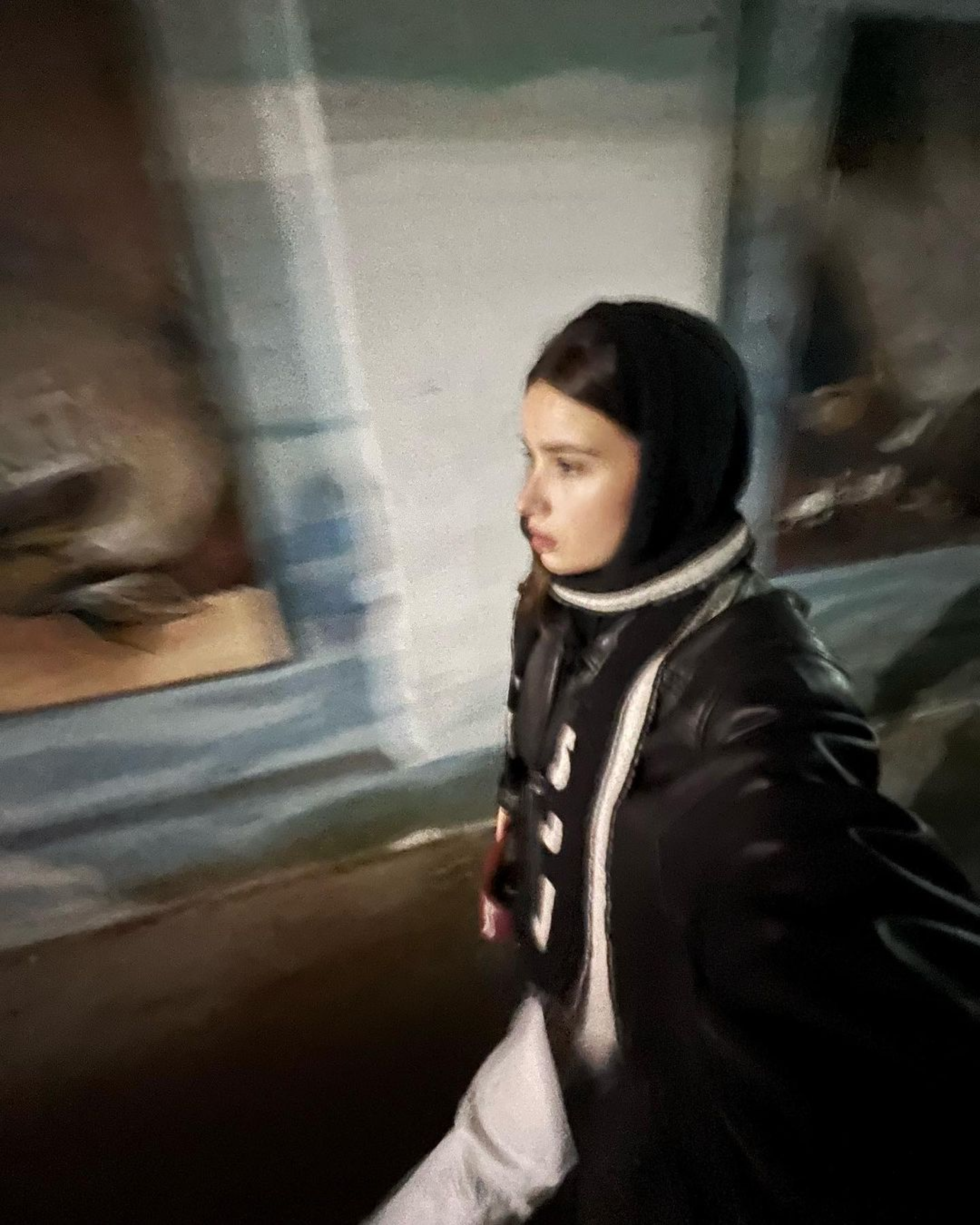
That’s probably helpful while DJing, right?
Exactly. I’ve always been interested in melody, rather than notes or what makes sense in music theory.
Were you embarrassed when your dad heard you singing on your way home?
Oh ya, so embarrassed! For me, I didn’t want anyone to know I was doing that, and I still don’t. [Laughs]
[Laughs] It sounds so natural, where your interest in music comes from.
Ya, when I was in elementary school my dad had introduced me to the DJ world a little. I'd found this website where you were able to put your vocals online and producers would request vocals for tracks they were working on. Ended up doing that for a couple of years! Placing vocals on top of very rough songs.
Like dance tracks?
Ya, electronic music. I was very young, like thirteen years old. I did a couple songs, one with a UK producer, that played on BBC Introducing’s radio show and an episode of The Trials of Jimmy Rose starring Ray Winstone, and another with an Australian producer. It was cool, a real introduction to house music. Even though it wasn’t really my style of music I enjoyed the process.
What kind of stuff were you listening to at this age? You mentioned you weren’t into house music, so what kind of music were you into?
My dad was mainly listening to stuff like Apparat, Massive Attack, Nizter Ebb, Kraftwerk, Goldfrapp and a lot of rock bands from the 90s , but he also introduced me to a lot of underground pop artists. I also grew up with Jennifer Lopez, Backstreet Boys and other artists that were a huge part of my generation but it was great to also hear alternative music and even underground house. There was always a great mix of genres. I was also listening to Alanis Morissette, The Cranberries, and other 90s vocalists, I loved them. I guess you can hear my references a little bit in my mixes.
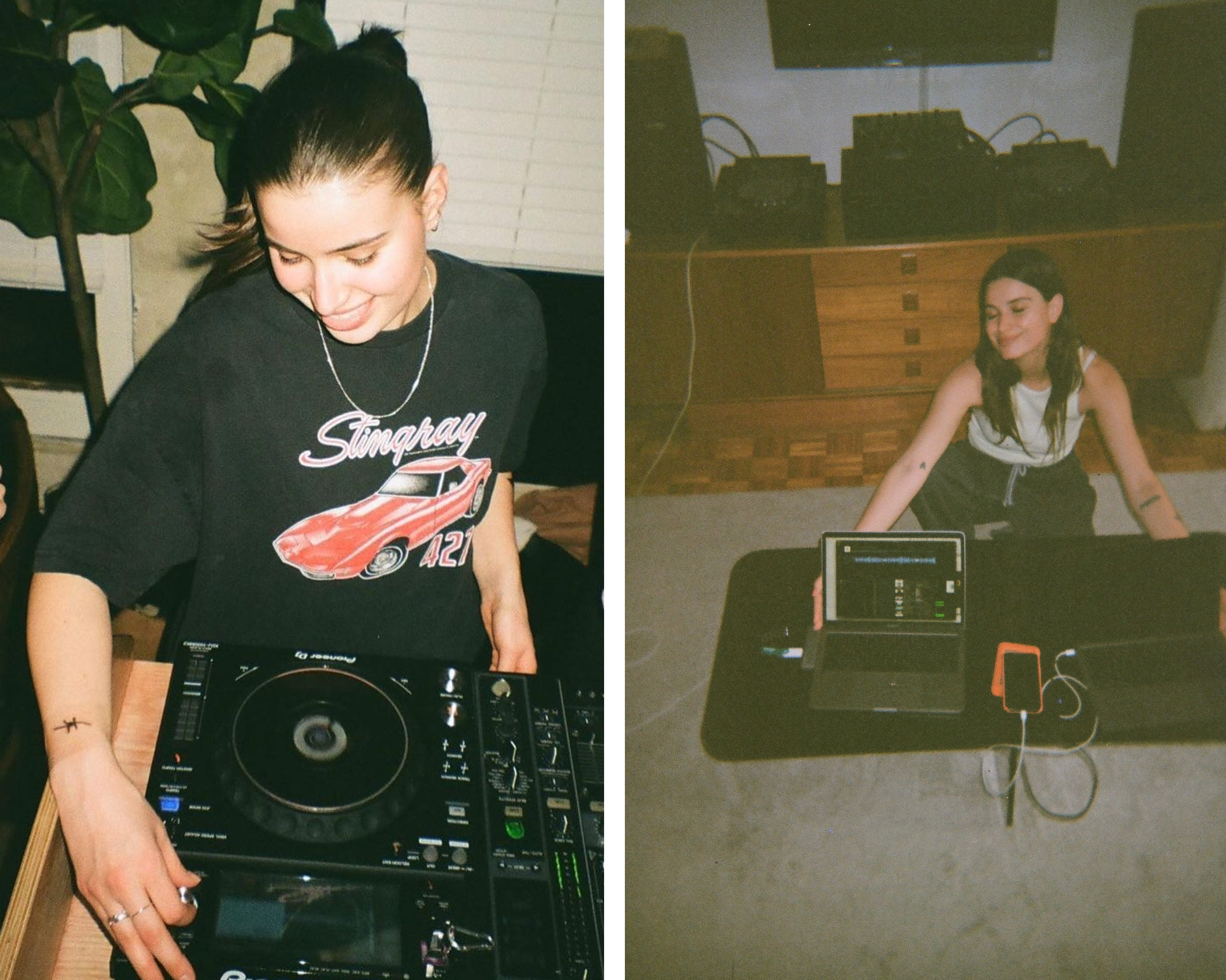
Ya, I can definitely hear it in your mix, one song sounds a bit like Cocteau Twins, or early 90s vocals. Very melodic, but also driven by a beat.
That’s definitely what was introduced to me when I was younger; kind of dreamy, nostalgic vocals, a little new wave / post punk.
What was your decision to pursue fashion, and also to move away from it?
The concept of fashion has always been very meaningful to me in terms of self-expression and codes. I love the attention to detail and even the teamwork that goes into it. I decided to move away from fashion simply because I needed a new challenge. Having always believed that my passion for music could only be a hobby, I realized that I could use my fashion background to push the music world a little further, especially in terms of branding with that background. Now when I create images, or DJ sets, I see it being expressed through a story. I try to create a narrative about how I feel in that moment. There is something more organic creatively about it. It's not a product at the end, it's music. There is a completely different universe surrounding this concept that is very close, in my eyes, to instant emotions and pure authenticity.
Did you find going to school for fashion led you to understand it in a different way?
It’s kind of funny because you learn all of this marketing introduction and design theory but you don't learn how to create an image. I think it's something that comes with a little confidence, the right team, a good concept and through experience. So, I wasn't really following the typical route for people who exit fashion school. Which is usually buying, production design, or brand marketing. A part of me always felt kind of different from the people in my degree. I knew that the typical path wasn't what I wanted to do.
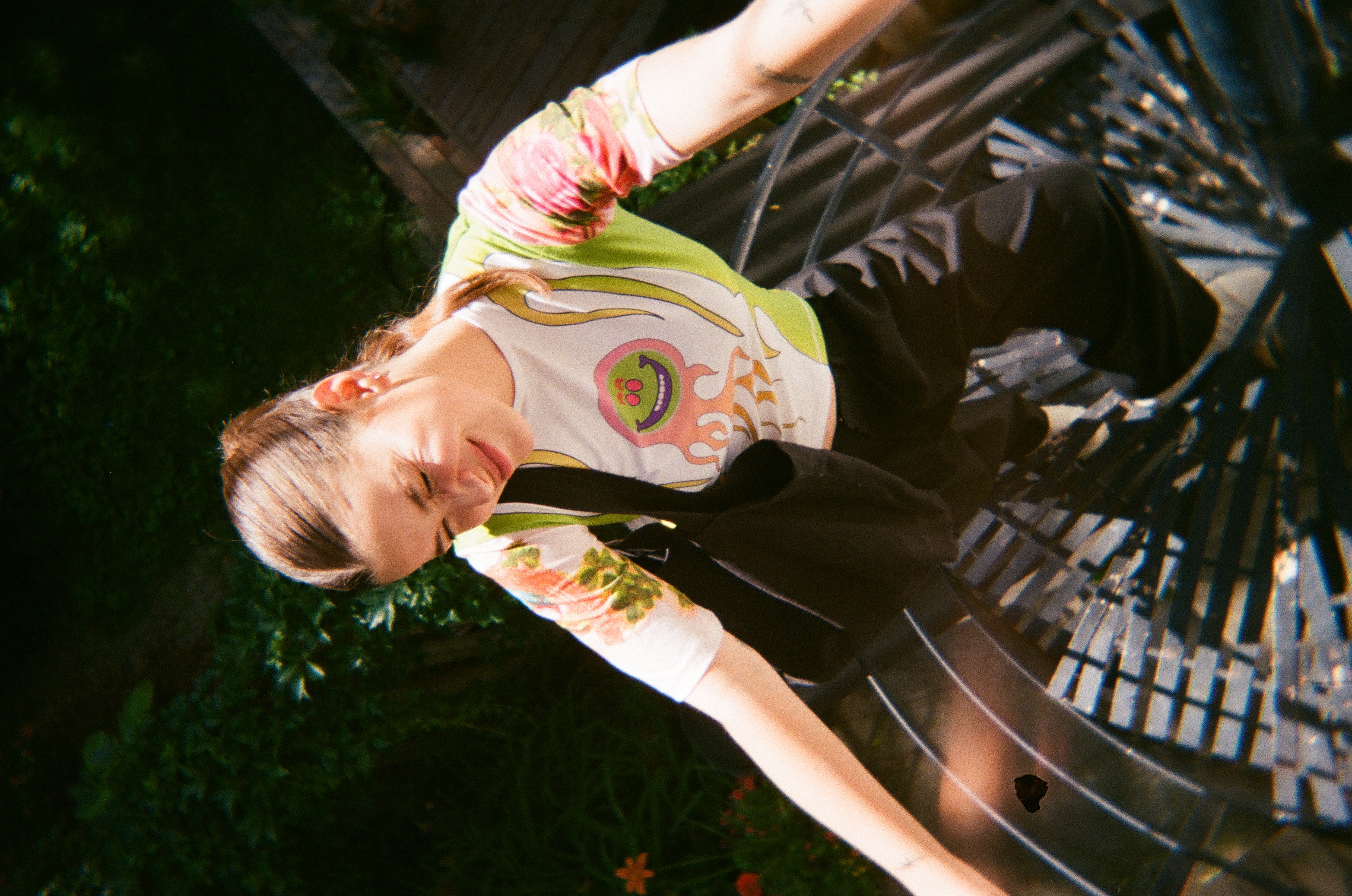
How did your work in creative direction evolve from your fashion experience?
Having a background in fashion means being very meticulous about every little detail that goes into branding. For me, having a 360-degree input on the style, photos, videos, website, or basically anything that touches visuals, makes complete sense. I'm creating a whole universe for the artist. What I find so interesting in doing creative direction for an artist, is that it isn't something you invent. The core is the human being. I start from who the artist is and amplify aspects of their life or the stories they want to tell. Being an artist myself, I have this sensitivity there; to understand their universe or the intention that they want to offer through their art.
I’m curious how that connects with your work as a DJ? It seems similar to me. You’re given a platform to create a world through a mix in a club or in someone’s headphones. Do you feel it satisfies a similar creative itch for you?
Absolutely! I’m always searching for new music when I’m working as a Creative Director so it’s very organic for me. I search for imagery and listen to mixes, or new releases at the same time. When I build a set, the storytelling concept is obviously part of my creative process. I also like to balance the past and the present by selecting music that is old and new.
When you’re researching music are you doing it through record shops, online, or from friends, or DJs, that recommend stuff to you?
A little bit from everywhere. I go to record shops. I get notifications from Bandcamp when artists or labels release new music. There’s also amazing accounts on Instagram that tell you about future releases or very rare vinyls. For example, in this mix, the first song is an unreleased track. I'll reach out to an artist through Instagram to see if I can play it in a mix and help promote it. Then of course, whenever I'm out with friends I'll always discover songs, especially since I’ve been travelling. These past couple months it's been fun to discover new cultural scenes and trends.
Where have you been and what have you picked up on?
Well, I’ve been to Toronto a couple times. My first time visiting Toronto was in May and since then I’ve been almost every month. I really enjoy discovering the scene here. There is something really grounded in Toronto's musical tastes from what I've seen. I feel like the trend is more about listening and discovery, rather than showing off technical skills.
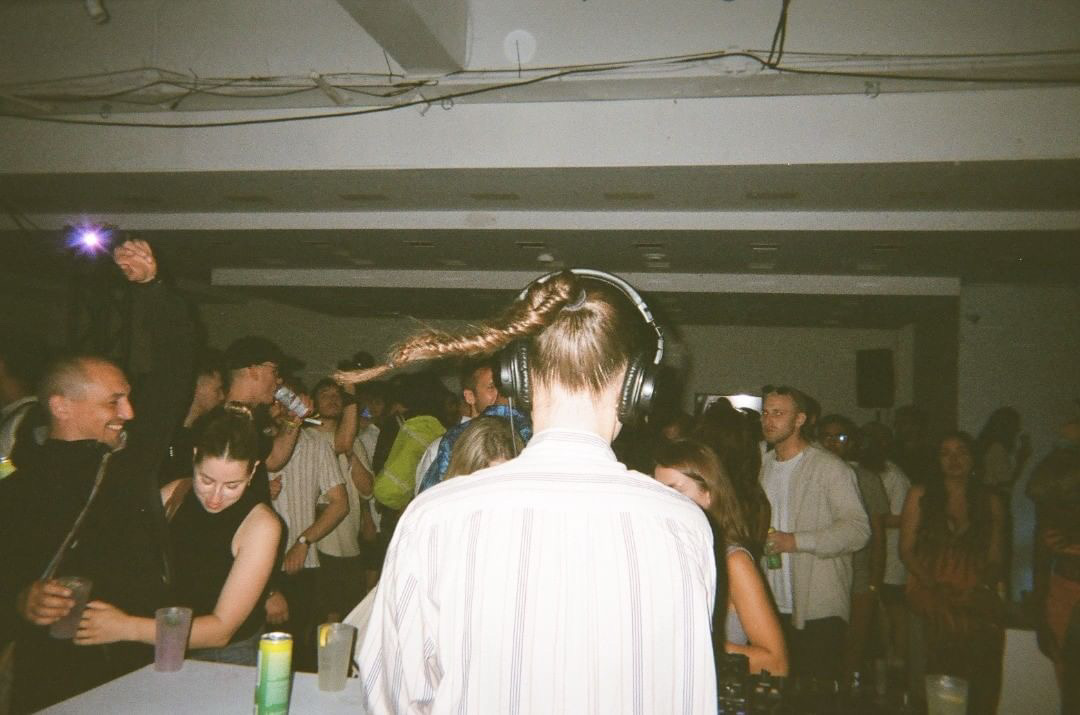
What other places have you been to?
In the last couple months I’ve been to Miami, New York, Paris, and LA. I loved every place. Miami really impressed me with its underground scene! I had this preconceived notion that Miami was only oriented towards the popular, commercial world, but I had an amazing time at Floyd and I got to see incredible DJs.
What was the music like?
Low bpm, very low, deep basslines, and the kind of vocals I usually go for, kind of 90s nostalgic. It was a perfect blend between a listening experience and technique. Song after song you would have this feeling of an unexpected surprise.
Is there a place you’d like to visit that has a musical scene you’d like to explore?
So many! Berlin, Tokyo, Chicago, Mexico City, Seoul, London. There’s so many.
In each of these places, the music scene has so much to do with the community, the people, and what they want from the music and what they contribute to it.
I think the community part is so important. Especially in music. In Montreal, the nightlife community is really tight. You have a lot of DJs playing a bunch of different stuff in different events and people are always supporting new initiatives and new DJs. There's a collective called Homegrown Harvest, that puts amazing raves together and books worldwide DJs, allowing the electronic music amateurs to meet and enjoy good music in a safe space. We also have this community radio called Shift Radio that emerged on the scene 2 years ago now. The concept is really similar to The Lot Radio in NYC, allowing people to meet at the radio but also online. I think the electronic scene is really lucky to have an initiative like this allowing the community to discover new DJs, old DJs, International DJs, etc. Having initiatives like this made by the community for the community is something that you can find pretty much around the world like NTS, The Lot Radio, Kiosk Radio, etc.
For your Work Redux mix, I’m curious what your moodboard was, or your references, for putting it together?
It was a challenge for me to record this mix because I usually play higher bpm and more dance music. So, for me to chill a bit, and play something more work oriented, was challenging. I think I re-thought the whole story and the whole set like seven times. Since I never have the occasion to play these songs, I couldn’t choose from all my options! I wanted people to recognize my style, even though what I usually play is more dance floor oriented. The synths are usually my signature, so I wanted a bit of that, but also a bit of the 90s vocals from my younger days... I wanted to put a little of chill house, jazz, and dub in there, mostly through the basslines... I guess the storyline was more about something to chill with that rises, then breaks with a more dub song in the middle. I was trying to picture myself when I’m working and really focusing, but not let it feel overwhelmed by the background. Although, it made sense for me to have it as a dance vibe at the end.
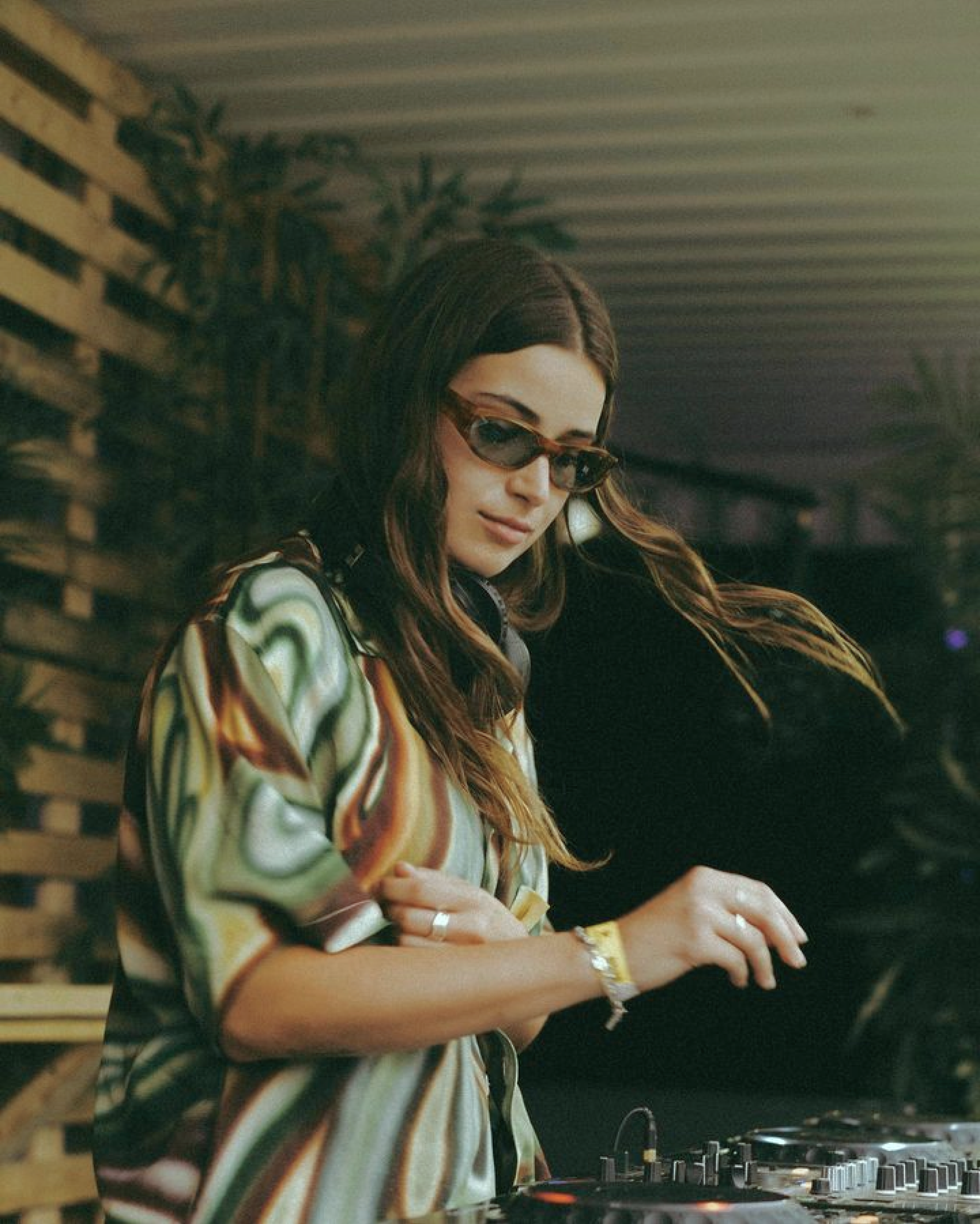
I definitely found it focused and relaxed at the start, and then before I knew it, I was really into the groove and dancing in my chair.
I think it’s nice to have these waves of sound that help you focus, dig in, and then take a little step back — then go back in it! I think that’s the beauty of mixing old and new songs too.
It’s so interesting to hear that there's a lot of new, even unreleased music in there, because you do weave it together into one piece.
I feel like I’m doing my real DJ job when I do that; putting in old songs that never really got out there, really digging in the archives. Combining it together with stuff that’s coming out in the coming weeks, or that’s newly released. It’s doing what a DJ should do. It’s obviously about sharing music, but it’s also about this beautiful mix of old and new that expresses the idea that even though it’s old, it can sound new, and even though it’s new, it can sound old.
I often ask that to the DJs I interview: if they feel that they are a historian, or an anthropologist, introducing music and creating a context?
Totally, but there’s also the input about how you feel in the moment. The reason why you choose that specific song is because of an emotion, or in the moment you thought it would make sense. Yes, it’s telling a story about where it comes from, giving that knowledge to people, but it’s also about the present moment, about how you feel when you share that song.
–
Work Redux is a collection of mixes made to be listened to while working. We work closely with local and international DJs to assemble thoughtful music that will carry members throughout their day and introduce them to new sounds. East Room is a shared workspace company providing design-forward office solutions, authentic programming and a diverse community to established companies and enterprising freelancers. We explore art, design, music, and entrepreneurship, visit our news & stories page to read more.